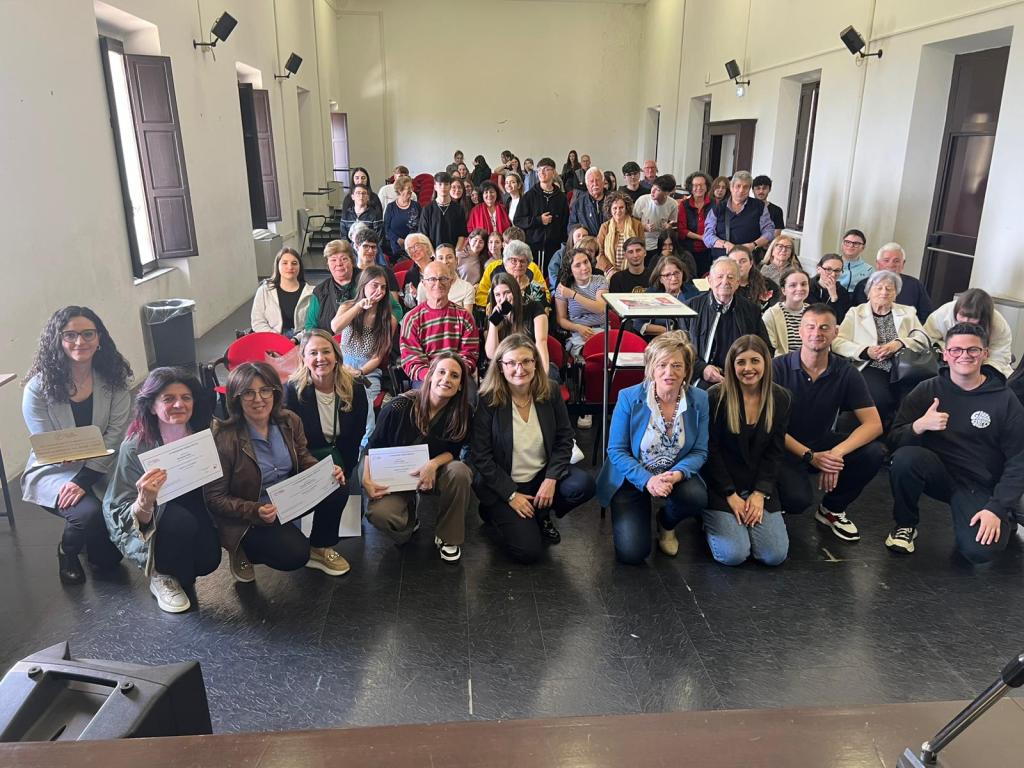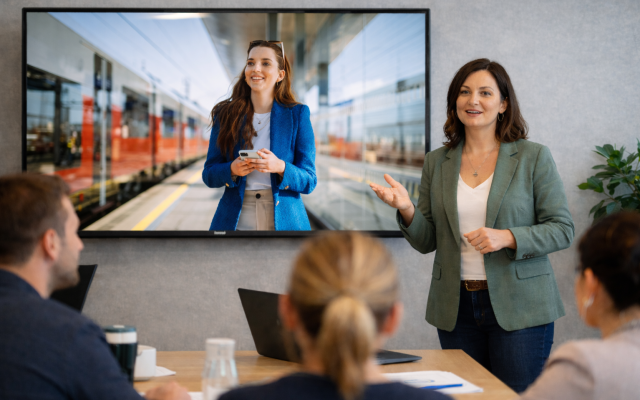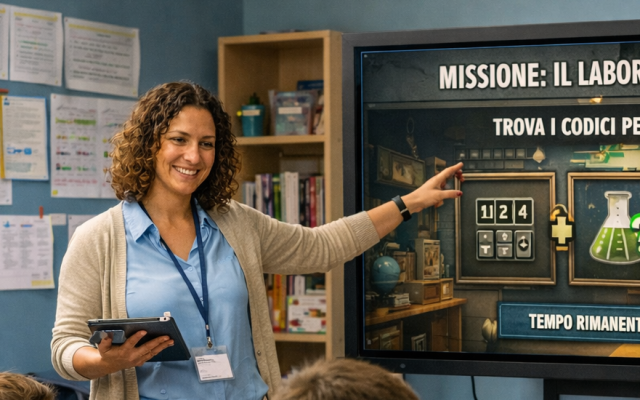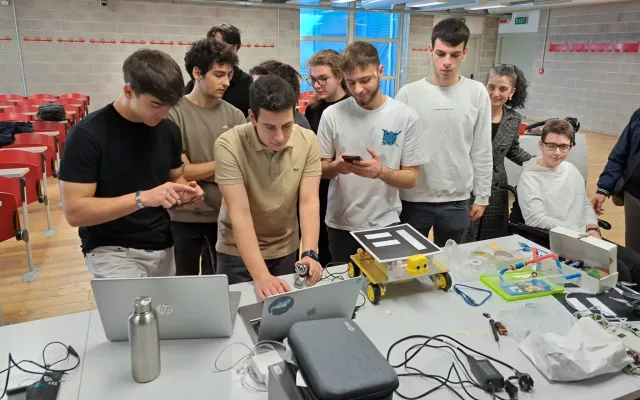A digital bridge between generations: listening becomes a skill and the past meets the future
On 14 May, a new cycle of the Grandparents on the Internet project, promoted by the Fondazione Mondo Digitale to encourage the digital inclusion of the over-65s through intergenerational dialogue, came to an end at the Giovanni Sulpicio high school in Veroli (Frosinone). Cecilia Stajano, community manager for the Foundation, who has been involved in the project throughout Italy for over twenty years, recounts the experience.
‘The emotion, strength and beauty of this project unfold before my eyes every time with the same force as the first edition,’ says Cecilia, emphasising how the programme's effectiveness lies in its simplicity: ’Two generations come together to exchange knowledge, where you go to the craftsman's workshop to learn. Here, the artisans are the youngest, some as young as fourteen, who, after a short training course, work alongside people in their sixties, seventies, eighties and even nineties, teaching them the digital skills they need to live today.’
At the heart of the method is a precise educational principle: to be ‘digital tailors’, i.e. to tailor teaching to the daily needs of each participant. ‘The young tutors know that the rule of ‘less is more’ applies, and to put it into practice, you need to take the time to get to know your student.’ It is a relationship that requires listening, empathy and patience, and in many cases becomes a deep bond. In Veroli, Cecilia continues, ’there are those who never had a grandparent, and this becomes an opportunity to have temporary grandparents. There are also those who are called grandpa, but have never been or are not yet grandparents, and so they take on a temporary grandchild.’
Over the months, stories, smiles and advice intertwine behind computer and mobile phone screens, in an exchange that enriches both generations. ‘I couldn't say who comes out of it more enriched,’ writes Cecilia. ’What we certainly gain is our humanity, which brings us back together to learn something digital, as if to say that only closeness, time and dedication can make us better.’
In this context, digital technology loses its aura of coldness and speed to become a place for relationships and care. Year after year, Nonni su Internet confirms itself as an example of social innovation capable of transforming digital education into an experience of collective growth and rediscovery of community.
What made this edition even more special for Cecilia was an unexpected personal return: ‘I never thought that in Veroli, the town where my grandparents went after the war and the setting for Christmas stories, I would be asked if I was related to Mario (my grandfather) because of my surname. So my excitement at going to a place dear to my family was crowned by this discovery of finding distant, very distant, but still relatives.’
An emotional bond that is intertwined with the educational mission, making each stage of the project an opportunity to rediscover oneself: ‘Nonni su Internet is about listening to each other, which builds you up.’




